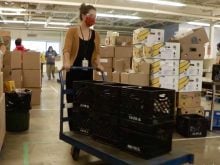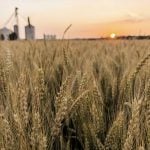Food service sales in 2023 have been steady compared to 2022 in all provinces except Manitoba, which saw a drop of one percent, says a report from Farm Credit Canada.
The report says sales in 2023 are back to pre-pandemic levels but below the pre-pandemic trend in most cases.
Alberta leads all Canadian provinces with a 7.3 per cent food service sales growth, followed by Ontario at 5.3 per cent and British Columbia at 5.1 per cent.
Read Also

Manitoba sunflower plant gets local owners
Scoular’s sunflower and bird feed plant in Winkler, Man., bought by Orenda Commodity Services Ltd. out of Ste. Agathe.
Why it matters: High inflation and interest rates are changing consumers’ food service spending habits.
Sales figures are calculated as percentage changes since 2022, the base year. The FCC report states that sales figures “are more a reflection of the lower sales volumes of 2022” than strong sales in 2023.
FCC credits population growth for some but not all of the increases in sales. Adjusted for population increases, food service sales growth was 1.3 per cent.
Though up in the second quarter of 2023, grocery sales continue to stagnate after major dips in Q2 and Q3 in 2021.
According to figures from Statistics Canada, price inflation in manufacturing and groceries have been steadily decreasing since July.
Food price inflation could have lasting impacts on Canadians, including health concerns.
Some producers have taken steps to combat the backlash associated with food price inflation. In October, Dairy Farmers of Canada recommended against implementing an approved 1.77 per cent increase in dairy prices.
DFC president David Wiens said that “dairy farmers and their families are also consumers and experience the high cost of food these days.”
Dalhousie University professor Sylvain Charlebois said public trust in producers has been shaken due to “an acute misunderstanding of how supply chain economics work.”
“There’s lots of misinformation as well and so those two things have actually made things a little confusing for the Canadian public.”
Charlebois said the statement by DFC reflects producers’ understanding of the situation.
“I don’t know if it’s created a precedent but it’s certainly a sign that they read the room.”
He said public outreach could address the public’s view of producers amid inflation.
“What is the number one issue affecting families right now? Food prices. Inflation. And so … if you’re a hog farmer, you’re a wheat farmer, do everything you can to reach out and connect with the public by focusing on this one issue, food inflation.
“The notion of supply chain economics (is) very foreign to a lot of Canadians,” Charlebois said. “So, you kind of have to help Canadians connect the dots every now and then.”


















